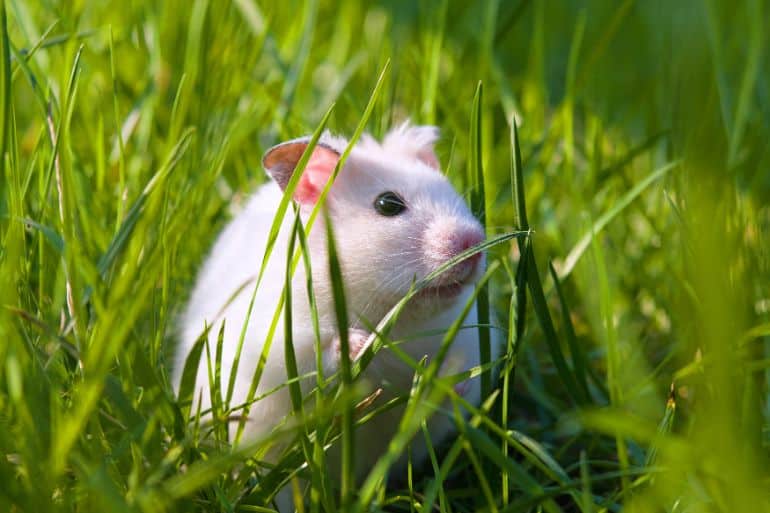Hamsters are adorable little creatures that make great pets. They are small, cute, and easy to take care of. However, some pet owners may feel that they can no longer take care of their pet hamster and consider releasing them into the wild. In this blog post, we will explore whether releasing a hamster into the wild is a good idea or not.

Hamsters: Domesticated or Wild?
Before we can answer the question of whether or not to release a hamster into the wild, we must first understand the difference between a domesticated and wild hamster.
What is a Domesticated Hamster?
A domesticated hamster is a hamster that has been bred in captivity for the purpose of being kept as a pet. Domesticated hamsters are not meant to live in the wild and have been bred to be dependent on humans for food and shelter.
What is a Wild Hamster?
A wild hamster is a hamster that lives in the wild. Wild hamsters have evolved to live in the wild and are able to forage for food, build their own nests, and defend themselves against predators.
The Dangers of Releasing a Hamster into the Wild
While it may seem like a good idea to release a hamster into the wild, there are many dangers that come with this decision.
Hamster’s Inability to Adapt to the Wild
Domesticated hamsters are not able to adapt to the wild. They do not possess the necessary skills to forage for food, build a nest, or defend themselves against predators. This means that if you release your hamster into the wild, it is likely to die a horrible death from starvation, exposure, or predation.
Predators in the Wild
Wild hamsters have evolved to live in the wild and have developed defenses against predators. However, domesticated hamsters have not developed these defenses and are easy prey for predators such as hawks, owls, and foxes.
Disease Transmission
Releasing a hamster into the wild can also lead to the transmission of diseases to native wildlife. Domesticated hamsters may carry diseases that are not present in the wild, and releasing them into the wild can introduce these diseases into the wild population.
Natural habitat
If you’re reading this, you’re most likely not from a region where hamsters are found in the wild. Domesticated hamsters come from dry arid regions, which are very different from where you likely live. As a result, hamsters are not equipped to deal with the environment in Europe and North America.
Alternatives to Releasing into the Wild
If you are no longer able to take care of your hamster, there are alternatives to releasing them into the wild.
Find a Suitable Home for Your Hamster
One alternative is to find a suitable home for your hamster. You can ask friends or family members if they are interested in adopting your hamster, or you can post an ad online.
Donate Your Hamster to a Rescue
Another alternative is to donate your hamster to a rescue. There are many animal rescues that specialize in small animals like hamsters and can provide your hamster with a safe and loving home.
Conclusion
In conclusion, releasing a hamster into the wild is not a good idea and is never something you should do. Domesticated hamsters are not able to adapt to the wild and are at risk of starvation, exposure, and predation.
Additionally, releasing a hamster into the wild can lead to the transmission of diseases to native wildlife. Instead of releasing your hamster into the wild, consider finding a suitable home or donating them to a rescue. By doing so, you can ensure that your hamster will be safe and well taken care of.
- How Long Do American Eskimo Dogs Live? Important Factors and Care Tips - September 29, 2023
- Do American Bulldogs Need Grooming? Essential Tips and Care Guidelines - September 29, 2023
- Do Bengal Cats Enjoy Playing? Essential Tips for Keeping Them Active - September 29, 2023